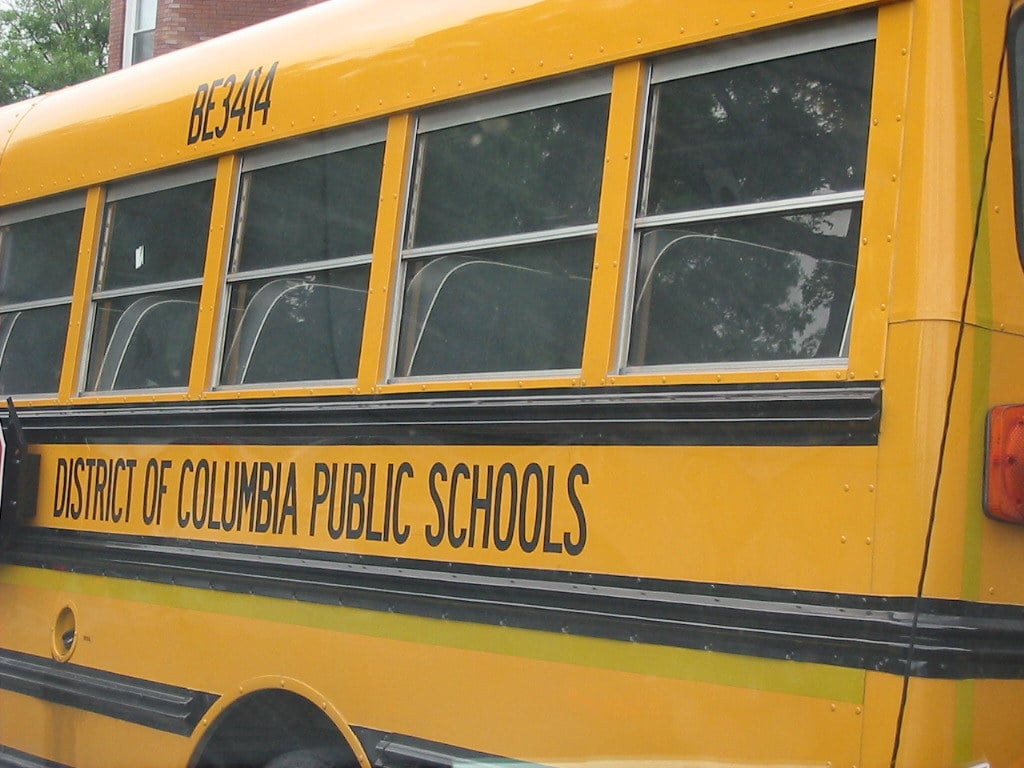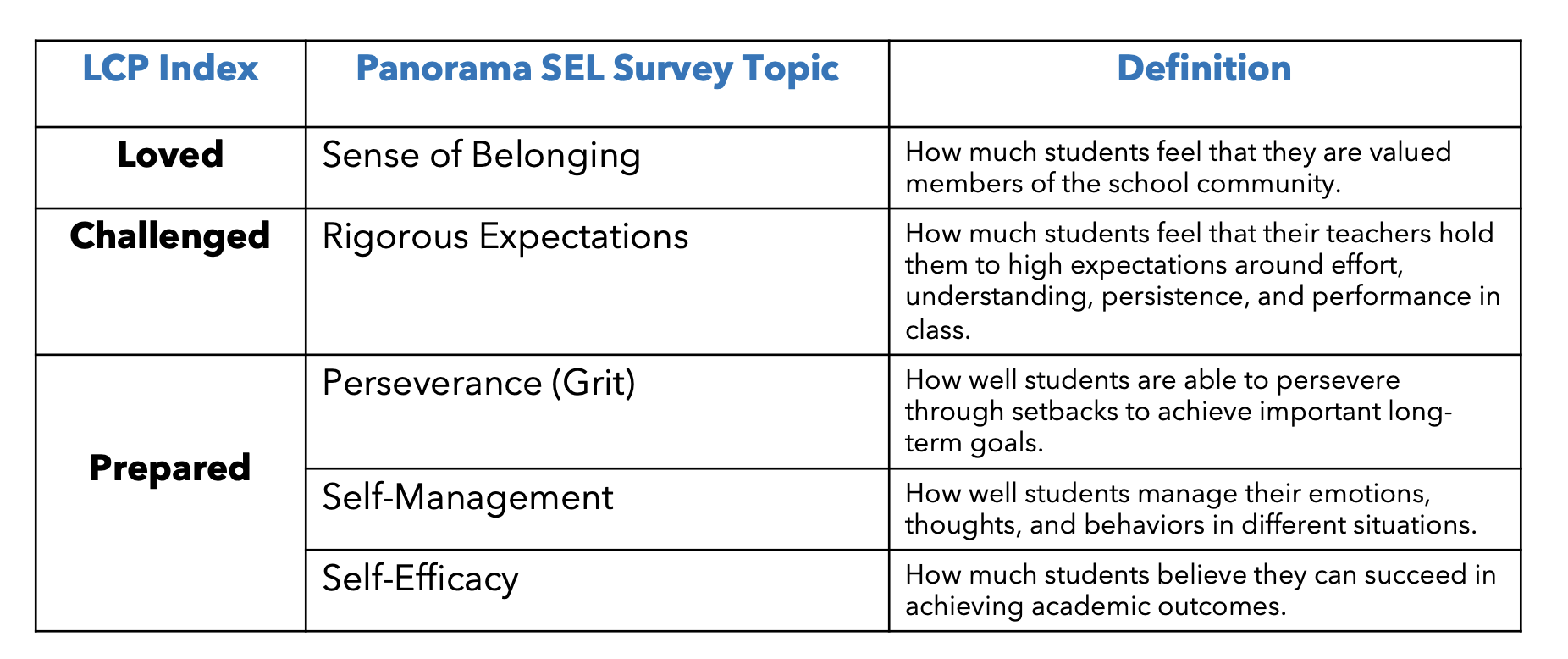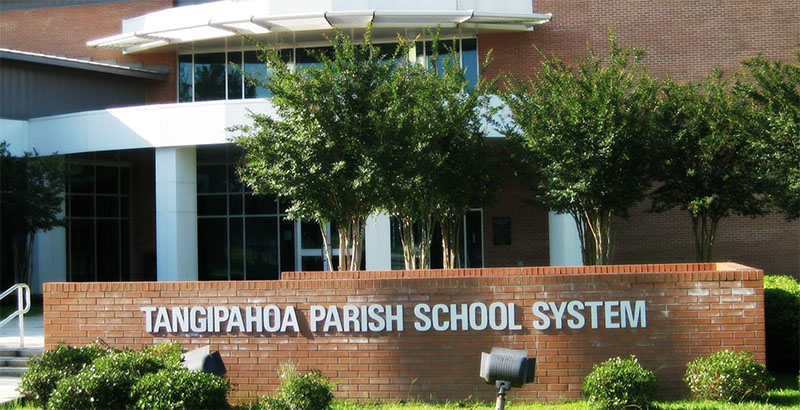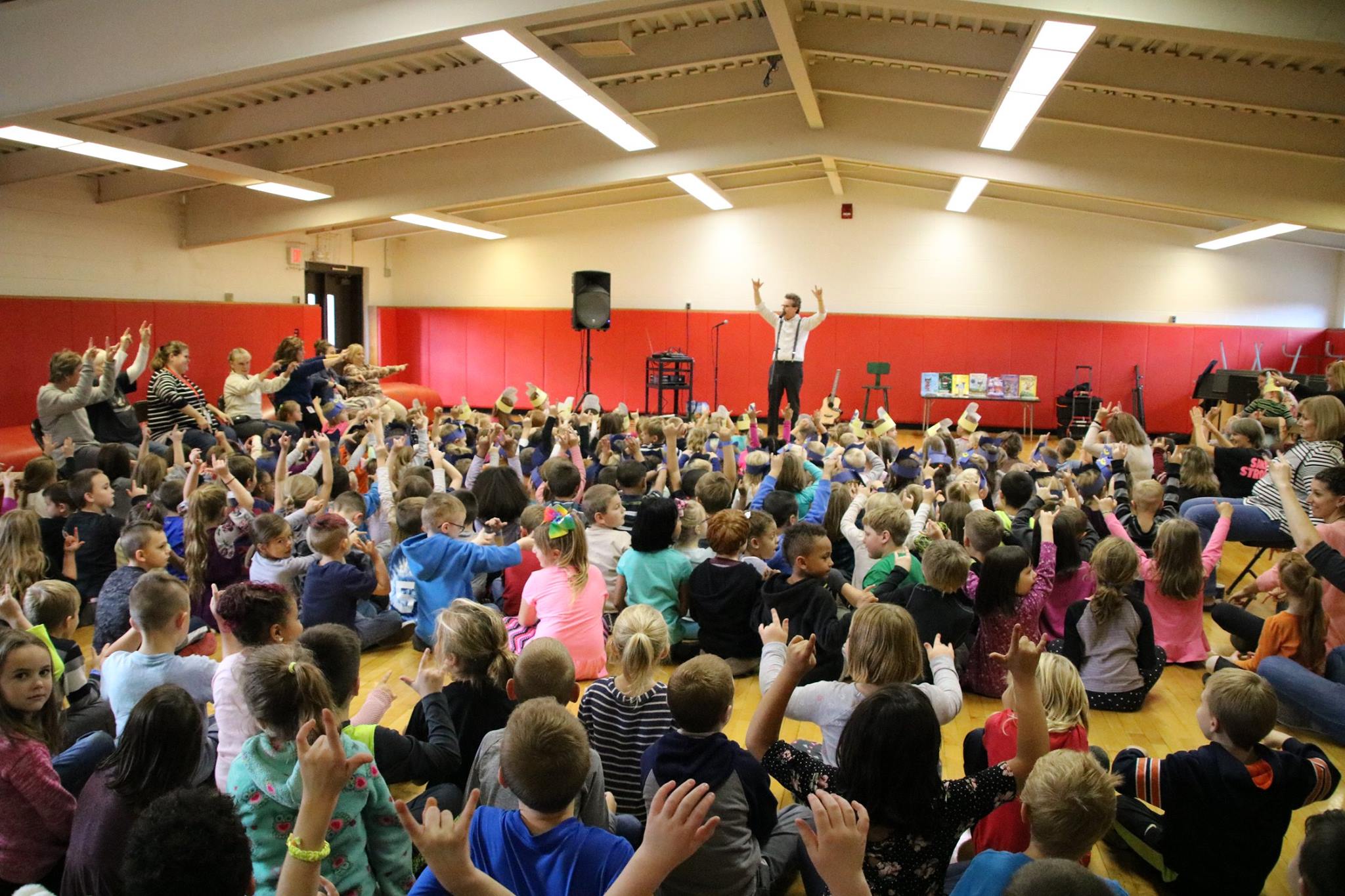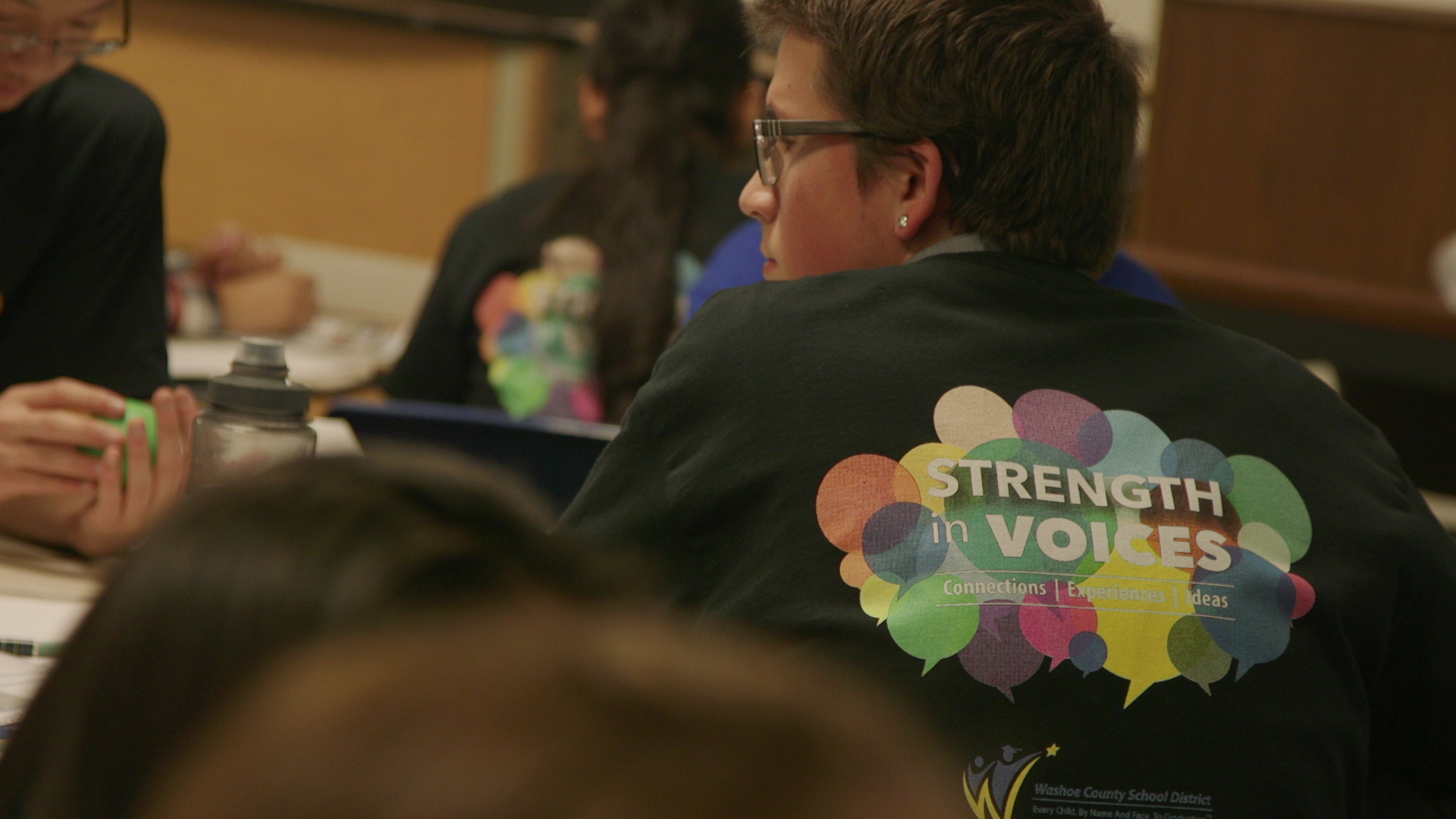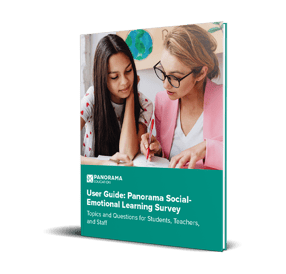
At District of Columbia Public Schools (DCPS), everything we do drives toward our mission of helping our 51,000 students reach their full potential through rigorous learning in a nurturing environment.
We are currently executing DCPS's five-year Capital Commitment, made up of six high-level goals to achieve by 2022. We believe that these goals are essential to ensuring academic growth, equity, and college and career readiness -- among other outcomes -- for our students.
The goals include: doubling the percent of students that are college and career ready; having 100 percent of K-2 students reading on or above grade level; having 85 percent of students graduate within a four-year cohort; having 100 percent of students feeling loved, challenged, and prepared; having 100 percent of our schools highly rated or improving; and lastly, serving at least 54,000 students.
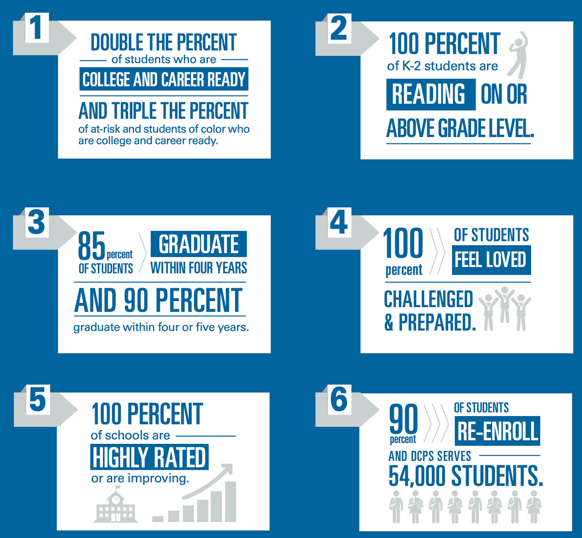
As the director of social-emotional learning (SEL) at DCPS, I work with my team of SEL specialists to elevate the fourth goal: that 100 percent of students feel loved, challenged, and prepared. Since 2018, DCPS has been using Panorama to measure progress towards this strategic goal, both to understand what students are telling us and where our schools need more support.
Panorama provides research-backed measures to help us assess students' SEL skills aligned to our Loved, Challenged, and Prepared Index (LCPI). It's also a powerful analytics tool that provides clear and actionable data while equipping our schools with tailored strategies to meet students' social and emotional needs.
Our Loved, Challenged, and Prepared Index
At DCPS, we developed a Loved, Challenged, and Prepared Index (LCPI) around our vision that every student feels loved, challenged, and prepared to positively influence society and thrive in life.
Within this index, we track how students are doing on each of the three indicators. We also combine the three indicators into an overall LCP Index score, since we want our students to have all three attributes.
Today, we see that nearly eight out of 10 students are feeling challenged. However, less than half of our students (45 percent) report feeling loved, challenged, and prepared. This data provides a baseline to determine the scope of work we need to take on as an SEL team.
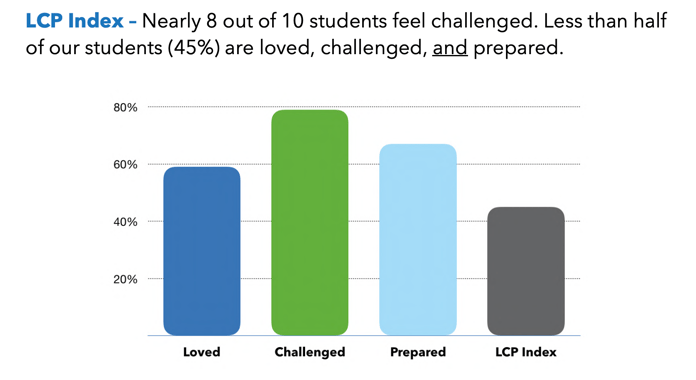
Tracking and Measuring Progress
When we first created the LCPI, we knew we needed a way to effectively measure year-over-year progress. We're on a mission to create an environment where 100 percent of students feel loved, challenged, and prepared -- and to do that, we need to know where we fall short. That's where our partnership with Panorama comes into play.
We worked with Panorama to align our LCPI to the topics on their research-backed survey -- including Sense of Belonging, Rigorous Expectations, Perseverance, Self-Management, and Self-Efficacy.
On an annual basis, we administer the Panorama Social-Emotional Learning Survey to students in grades three through 12. Each survey topic consists of multiple questions to validly and reliably capture students' perceptions of their own SEL competencies. For example, for the Sense of Belonging topic (which equates to our Loved measure), students answer questions about how well people at school understand them, how connected they feel to others at school, and how much respect they receive from peers.
After each survey administration, the results are readily available in Panorama. The platform is customized to our needs and makes it easy to see how we're doing against our LCPI. We can analyze the results at the district level to get that overall "loved, challenged, and prepared" snapshot. We can also break down the reports by school to see if some communities need additional support with SEL implementation.
"Panorama helps us measure students' SEL skills aligned to our Loved, Challenged, and Prepared Index. It provides powerful analytics to tell us how loved, challenged, and prepared students are feeling, and it equips our schools with tailored strategies to meet students' social and emotional needs."
Creating a Culture of Love at DCPS
Over the past two years of Panorama data, our Loved "data story" (how valued students feel by peers and adults) has scored the lowest in our Loved, Challenged, and Prepared Index. This data point has prompted us to focus on creating a culture of love and belonging for our students.
Here are some of the systems and structures we've implemented to improve student sense of belonging:
- Panorama Playbook: Within Panorama, school teams can identify their lowest indicator and go right into Panorama's Playbook to find expert-sourced "moves," strategies, and classroom activities that are aligned to that indicator. For example, if the lowest indicator is Sense of Belonging, Playbook generates resources focused on student belonging that teachers and staff can put in action before the next survey administration.
- Proactive and Responsive Circles: We're working to implement restorative practices across the district at the elementary and secondary levels. Instead of being quick to apply exclusionary practices, we want to teach our students how to manage emotions and handle conflict using restorative strategies. We've hired two restorative practice specialists who train school-based staff on how to facilitate proactive and responsive circles.
- Re-thinking In-School Suspensions: We're re-imagining in-school suspensions to provide wraparound services and support to students. Now, a team of school psychologists, counselors, and social workers enters the in-school suspension space to meet with students. They work to understand the root causes of the misbehavior so they can deliver interventions and supports that decrease the likelihood of repeat behavior.
Panorama is helping us take a data-driven approach towards our goal of 100 percent of students feeling loved, challenged, and prepared. We're able to identify the biggest levers to pull and ensure that our SEL programs are grounded in what students are telling us.
Looking ahead, we'll continue to use the data and resources from Panorama to execute on our strategic goals at DCPS. This partnership has been essential to helping us create an environment of love and belonging in which our students can thrive.
Dr. William Blake is the director of social-emotional learning at District of Columbia Public Schools.
Dr. Blake and his team of SEL specialists support school leaders with school-wide SEL implementation and with incorporating whole-child instructional practices into their daily work.
Interested in measuring your students' SEL skills? Download the open-source Panorama Social-Emotional Learning Survey.

